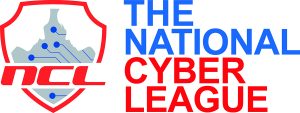
RedTeam@MTU, one of Michigan Tech’s National Cyber League (NCL) teams, placed 8th out of 689 teams in the recent NCL Fall 2019 cyber competition team game. The team consists of seven College of Computing undergraduate and graduate students: Alexander Larkin, John Claassen, Jack Bergman, Jon Preuth, Trevor Hornsby, Shane Hoppe, and Matthew Chau. In addition, two RedTeam@MTU team members ranked in the top 100 out of 4149 players in the individual game: John Claassen (67th) and Alex Larkin (70th).
“This is a breakthrough since first joining the NCL competition in Fall 2017,” said faculty coach Bo Chen, assistant professor of computer science. “Congratulations to the RedTeam and John Claasen and Alex Larkin!”
Three teams and 21 players from Michigan Tech were involved this season, most of them with the RedTeam@MTU, a student organization which exists to promote a security-driven mindset among the student population, and to provide a community and resource for those wishing to learn more about information security. The RedTeam is co-advised by Bo Chen and Yu Cai, professor in the College of Computing.
Students from hundreds of U.S. universities participated during the Fall 2019 NCL season, which comprised a week-long Preseason placement game, followed by a weekend Individual Game, and culminating in a weekend Team Game. A total of 689 teams and 4149 players participated.
In addition, Michigan Tech ranks 11th among the top 100 colleges and universities in the “Team” Cyber Power Rankings, 51st in the Individual Rank, and 23rd in the Participation Rank. The Cyber Power Rankings were created by Cyber Skyline in partnership with the National Cyber League (NCL). The rankings represent the ability of students from these schools to perform real-world cybersecurity tasks on the Cyber Skyline platform, such as identify hackers from forensic data, pentest and audit vulnerable websites, recover from ransomware attacks, and more. Schools are ranked based on their top team performance, their top student’s individual performance, and the aggregate individual performance of their students. View the full ranking list at https://cyberskyline.com/data/power-ranking/fall-2019-national.
Founded in 2011 to provide an ongoing virtual training ground for participants to develop, practice, and validate their cybersecurity skills, the NCL is a defensive and offensive puzzle-based, capture-the-flag style cybersecurity competition. Its virtual training ground helps high school and college students prepare and test themselves against cybersecurity challenges that they will likely face in the workforce. All participants played the games simultaneously during all of the Fall season games.
The NCL challenges are based on the CompTIA Security+™ and EC-Council Certified Ethical Hacker (CEH)™ performance-based exam objectives and include the following content: Open Source Intelligence, Scanning, Enumeration and Exploitation, Password Cracking, Traffic Analysis, Log Analysis, Wireless Security, Cryptography, and Web Application Security. Players of all levels can participate in the NCL games. Through easy, medium and hard challenges, students have multiple opportunities to excel.
Learn more about the NCL at: https://www.nationalcyberleague.org/.

Cyber Skyline is an immersive cloud platform on which to practice, develop, and measure technical cybersecurity skills. It is built for Incident Response Handlers, Security & Network Engineers, SOC Analysts, Software Engineers, Pentesters, and more. Visit the Cyber Skyline website at: https://cyberskyline.com.

